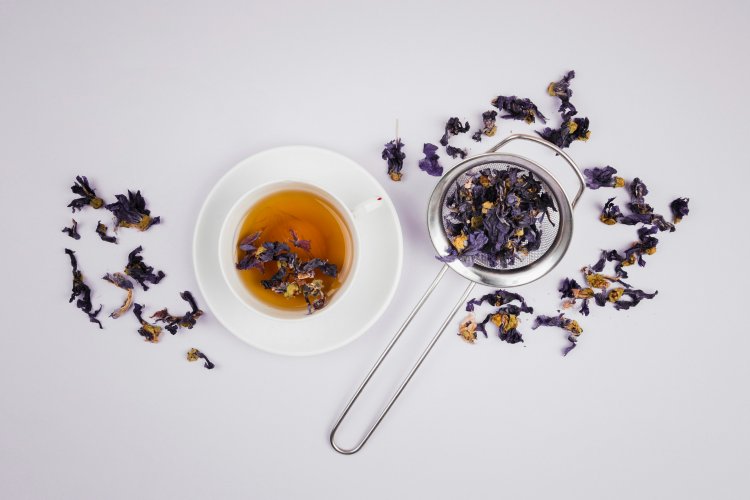Exploring the Richness of Green Tea: Health Benefits, Varieties, and Cultural Significance
Green tea, celebrated for centuries in East Asia, stands out not only for its distinct flavor but also for its myriad health benefits and cultural significance. This comprehensive article delves into its fascinating history, diverse health advantages, modern applications, and tips for enjoying this revered beverage.

Historical and Cultural Context
Green tea, derived from the Camellia sinensis plant, boasts a rich history spanning millennia. Originating in China over 4,000 years ago, it later spread to Japan and became an integral part of traditional ceremonies and daily rituals in both countries.
Chinese Heritage
In Chinese culture, green tea symbolizes vitality and longevity. It has been revered for its medicinal properties and is often incorporated into daily life, from casual gatherings to formal ceremonies.
Japanese Tradition
In Japan, green tea plays a central role in the tea ceremony (chanoyu), where matcha, a finely powdered green tea, is prepared and enjoyed with profound reverence for aesthetics and mindfulness.
Health Benefits of Green Tea
Powerful Antioxidants
Green tea is rich in polyphenols, particularly catechins such as epigallocatechin gallate (EGCG), which function as potent antioxidants. These compounds help neutralize free radicals, reducing oxidative stress and inflammation in the body.
Enhanced Brain Function
The combination of caffeine and L-theanine in green tea promotes improved brain function. It can enhance cognitive abilities, including memory, focus, and mood regulation.
Heart Health
Regular consumption of green tea has been associated with lower levels of LDL cholesterol and triglycerides, contributing to cardiovascular health. It may also help improve artery function and reduce the risk of heart disease.
Weight Management
Green tea is known to boost metabolism and increase fat oxidation, making it a popular choice for individuals looking to manage weight or improve body composition.
Oral Health
The catechins in green tea possess antibacterial properties that can inhibit the growth of oral bacteria, reducing the risk of cavities, gum disease, and bad breath.
Potential Cancer Prevention
Some studies suggest that the antioxidants in green tea, particularly EGCG, may help protect against certain types of cancers by inhibiting tumor growth and reducing the formation of new blood vessels in tumors.
Modern Uses and Varieties
Green tea is available in various forms, each offering unique flavors and textures:
- Sencha: The most common variety in Japan, characterized by its grassy and mildly astringent taste.
- Matcha: A finely ground powder used in the traditional Japanese tea ceremony, offering a rich, umami flavor and vibrant green color.
- Genmaicha: A blend of green tea and roasted brown rice, known for its nutty flavor and low caffeine content.
- Ready-to-Drink: Bottled or canned green tea beverages, often sweetened and flavored, are convenient options for on-the-go consumption.
Beyond traditional brewing, green tea extracts are increasingly utilized in skincare products for their anti-inflammatory and antioxidant properties, promoting skin health and vitality.
Brewing and Enjoyment Tips
For the best green tea experience, consider these brewing tips:
- Water Temperature: Heat water to around 175°F (80°C) to preserve the delicate flavors of green tea and avoid bitterness.
- Steeping Time: Steep green tea leaves for 2-3 minutes to extract the desired flavor without over-extraction.
- Multiple Infusions: High-quality green teas can be steeped multiple times, revealing different nuances with each infusion.
Green tea transcends its status as a beverage; it embodies a profound cultural heritage and a treasure trove of health benefits. Whether enjoyed for its refreshing taste, therapeutic properties, or cultural significance, green tea continues to captivate and enrich lives worldwide.
Disclaimer
The information provided in this article is for educational purposes only and should not be considered medical advice. If you have any health concerns or are experiencing symptoms, it is important to consult with a healthcare professional, such as a doctor or clinic, for proper diagnosis and treatment. Always seek the advice of your doctor or other qualified health provider with any questions you may have regarding a medical condition. Do not disregard professional medical advice or delay in seeking it because of something you have read in this article.
#GreenTea #HealthBenefits #Antioxidants #CulturalHeritage #TeaCeremony #WeightManagement #BrainFunction #OralHealth #CancerPrevention #BrewingTips
What's Your Reaction?





















